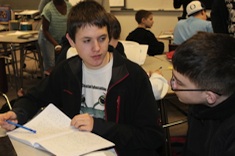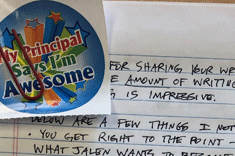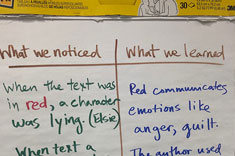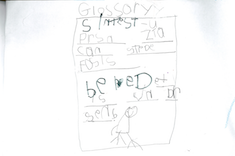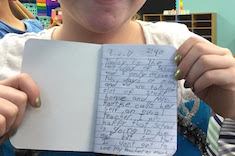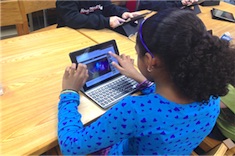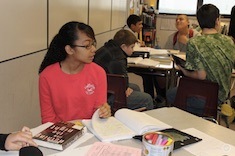Matt Renwick
Matt Renwick is a systems coach for CESA #3, a state-supported education service agency in Southwestern Wisconsin. During his 20-year career in education, he has served as a principal in two Wisconsin elementary schools and as a middle grades vice principal, teacher, and athletic coach.
Latest Content
January 17, 2025: More Engaged Students
This week’s newsletter is about engagement.
How to Promote Civil Discourse in Your Classroom
Matt Renwick shows how to build the capacity of all students to engage in civil discourse.
Big, Loud, and Slow: Six Strategies for Better Public Speaking
Matt Renwick worked with a speech therapist after having a stroke. Through this process, he realized powerful teaching points to help students become stronger public speakers.
Three Archetypes as Advocates for the Science of Reading
Matt Renwick defines three archetypes of personalities he has observed who have incomplete understandings about the science of reading. Matt offers approaches to each person, and notes that no one person neatly fits into a simple archetype.
Status of the Class for Readers and Writers
Matt Renwick reflects on the importance of building students’ identities as readers and writers and the power of a daily status of the class. Download a template to put this routine in place in your own classroom.
Hanging Out, Messing Around, Geeking Out (or, how to give students the resources, space, and time for self-directed literacy learning)
Matt Renwick challenges educators that if we believe that social and emotional learning is just as important as academics, then we ought to use resources, space, and time to support self-directed learning.
How to Use Students’ Reading Logs as a Formative Literacy Assessment
Matt Renwick reminds us that there is a lot of information available in our classrooms that can inform instruction. Some of it is “hiding in plain sight,” for example reading logs.
Five Phrases That Should Be at the Top of Every Writer’s First Draft
Matt Renwick gives five phrases every writer should put at the top of a draft, and then explores the way doing so can help develop creativity.
Sincerely Positive
Matt Renwick offers advice on how to use feedback as a tool to support and reinforce what students are doing well. Sincerity and positivity will always give students more confidence in themselves as writers.
Four Tools for Hosting Online Book Clubs
Matt Renwick leads us to design book clubs where students can continue to grow and connect as readers in online discussions.
One Text. One Conversation. Many Possibilities.
Matt Renwick explores ways in which whole-class conversations around one text can build a strong community as understanding is co-constructed.
Building Writer Relationships with Author Studies
Matt Renwick shares creative ways teachers in his school celebrate authors.
Data That We Can Trust
Matt Renwick finds the data closest to the students we serve is more helpful to teachers than many benchmarks or screener scores.
Teaching Constructed Response Before Exams
Teaching the genre of tests can seem far removed from writing workshop. Matt Renwick explores how to teach constructed response in a way that is integrated with the tenets of good workshop instruction.
Readers Want to Respond
Matt Renwick is surprised when his son completes a reading quiz that isn’t required, and finally realizes it’s all about reading response.
Hidden Treasures
Matt Renwick describes the process of paying attention to telling details, and gives practical advice for teaching this skill to young writers.
Three Challenges for the 40 Book Challenge
Matt Renwick encourages you to ask a few critical questions before you adopt the 40-Book Challenge or any other activity with a number for a goal you’re going to be tied to all year long in your classroom.
Using Tech to Find Authentic Audiences for Student Writing
Matt Renwick discovers technology provides many authentic audiences for student writing.
Literacy and Global Competence
“China is going to kill us all!” This quote from a student causes Matt Renwick to stop and consider how schools can use literacy to promote global understanding.
Resisting Rubrics
Matt Renwick explains why sometimes the best way to grow reading abilities in students is to resist rubrics.
Moves for Struggling Writers
Here are Matt Renwick's three favorite moves for helping struggling writers.
Video Games and Literacy
Matt Renwick finds there is value in connecting video games and literacy in classrooms, once he and the teachers he works with can get past their leeriness.
Supporting Introverts at Any Age
What many school leaders, teachers, and students have in common is that they are introverts. Matt Renwick remembers exhaustion from his first year of teaching because of introversion, and offers suggestions for meeting the needs of introverts in any school community.
Getting Started with Student Podcasting
If you’re interested in launching student podcasts, Matt Renwick has resources and tips for getting started.
Browse Content By
Type
Category
- Assessment Tools
- Big Fresh Archives
- Booklists
- Choice Numeracy
- Classroom Design
- Common Core
- Community Building
- Conferring
- Content Literacy
- Digital Literacy
- English Language Learners
- Equity
- Family Relations
- Free Samples
- Guiding Groups
- Leadership
- Literacy Coaches
- Mentor Texts
- Minilessons
- New Teacher Mentors
- Podcasts
- Poetry
- Quote Collections
- Reading Strategies
- Self Care
- Struggling and Striving Learners
- Talking and Listening
- Teacher Study Groups
- Teaching Reading
- Teaching Writing
- Word Study and Vocabulary
Author
- Melissa Quimby
- Nawal Qarooni
- Gwen Blumberg
- Julie Cox
- The Lead Learners
- Hannah Tills
- Josie Stewart
- Ruth Metcalfe
- Mallory Messenger
- Becca Burk
- Jodie Bailey
- Vivian Chen
- Mary Brower
- Tiffany Abbott Fuller
- Stephanie Affinito
- Ruth Ayres
- Leigh Anne Eck
- Heather Fisher
- Shari Frost
- Julie Johnson
- Suzy Kaback
- Gigi McAllister
- Shirl McPhillips
- Melanie Meehan
- Cathy Mere
- Debbie Miller
- Tara Barnett and Kate Mills
- Tammy Mulligan
- Dana Murphy
- Bitsy Parks
- David Pittman
- Brenda Power
- Heather Rader
- Matt Renwick
- Mandy Robek
- Christy Rush-Levine
- Gretchen Schroeder
- Jen Schwanke
- Brian Sepe
- Katherine Sokolowski
- Stella Villalba
- Jennifer Vincent
Grade Level
Choice Literacy Membership
Articles
Get full access to all Choice Literacy article content
Videos
Get full access to all Choice Literacy video content
Courses
Access Choice Literacy course curriculum and training








